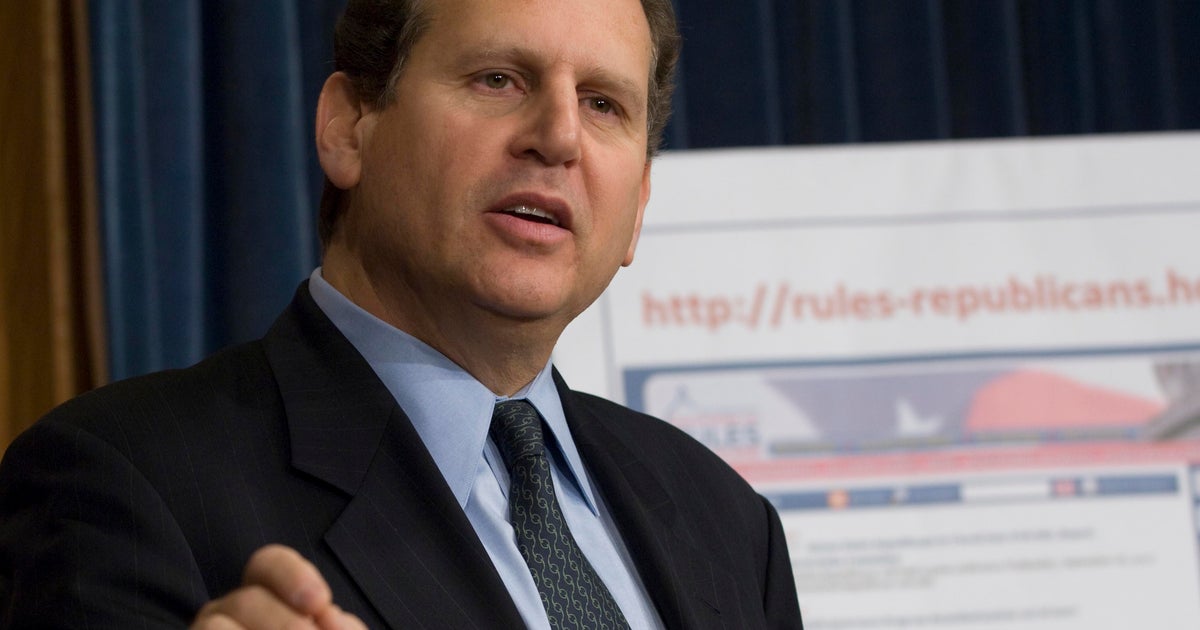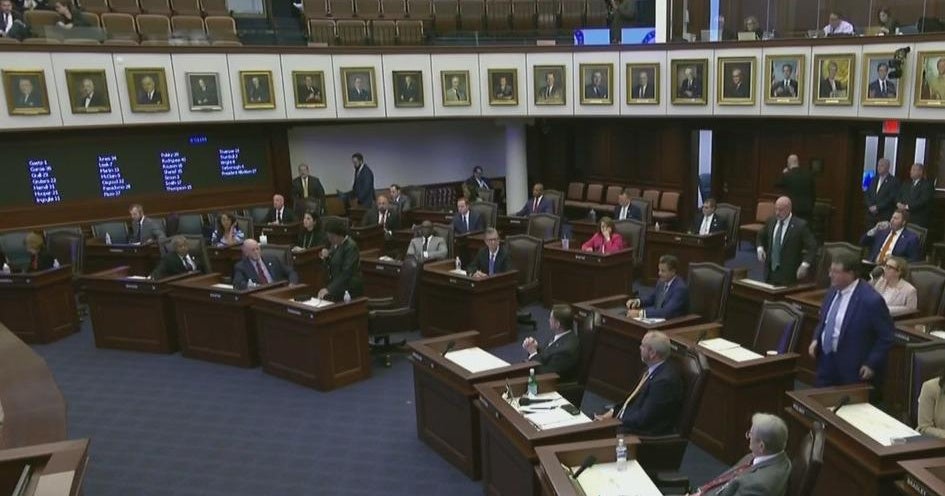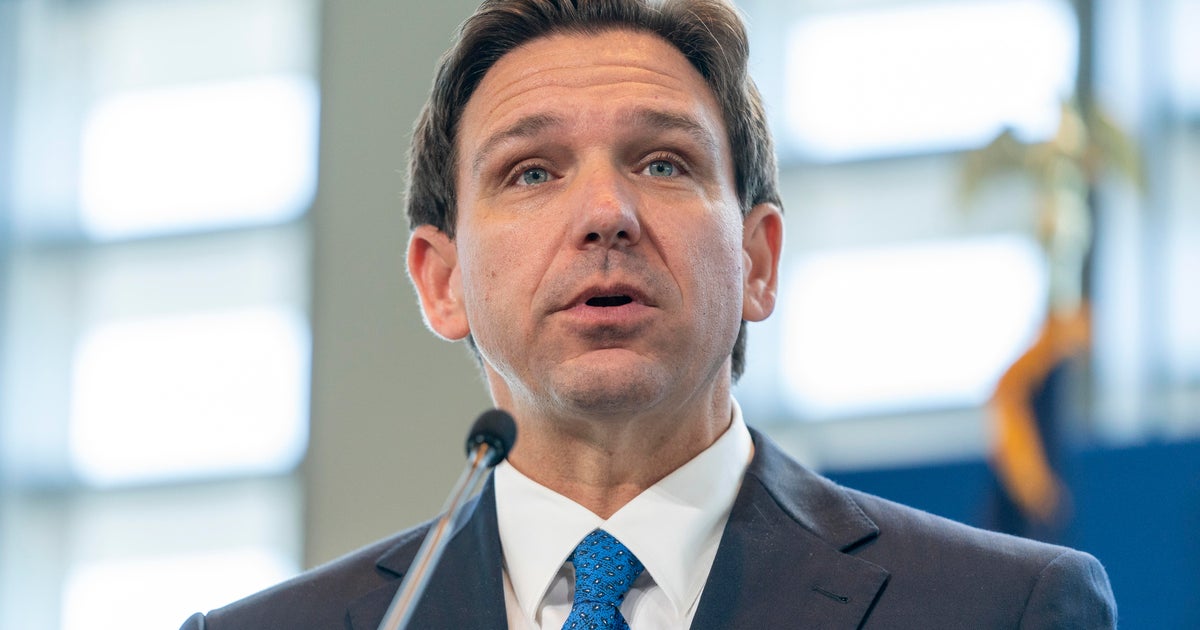Former Lt. Gov. Jeanette Nuñez discusses qualifications and goals as FIU interim president
Former Lt. Gov. Jeanette Nuñez sat down with "Facing South Florida" for her first interview since becoming interim president of Florida International University.
Nuñez, who served in Gov. Ron DeSantis' office since 2019, resigned last month to take up her new role at FIU, which comes with a significant pay increase from $135,000 as lieutenant governor to over $1 million as leader of the South Florida university.
On Sunday, she discussed her qualifications to be a university president, her goals for the school, and why the state is going through the pretense of a national search when it's common knowledge she'll remain as president.
Plus, "Facing South Florida" asks her about the state's decision to no longer allow undocumented students to qualify for in-state tuition at FIU and other Florida schools.
In-state tuition for undocumented students
"Facing South Florida" first questioned Nuñez about her support for the revocation of in-state tuition for documented students – a policy that she championed back in 2014 while she was still a member of the Florida House.
She explained that the situation over 10 years ago was different as it focused on DACA students and that the policy has been reevaluated due to changes in immigration and the strain on public services.
"As we went from a public policy debate, I think was really what started to get us thinking as it related to the obligation we have to our U.S. citizens, our Florida residents that are here, that you know is very competitive and we have an obligation to make sure that we have ample capacity for those students," Nuñez said.
"Facing South Florida" challenged Nuñez on the logic of investing in these students' education only to deny them future opportunities; however, she said her perspective changed as she went from representing a district to representing the state as a whole, which led her to begin reformulating and framing the necessary discussions.
"I think when you see what has transpired over the last several years, it really was an important policy discussion and debate to have, and many that were in the legislature then have also shifted their positions and looked at it in a different lens," Nuñez said.
Policy change impact on students
According to Nuñez, there are about 538 students at FIU who are affected by the revocation of in-state tuition waivers.
"Facing South Florida" quoted her 2014 statement about the humanity of the situation, questioning why her words don't hold true today. Nuñez responded by discussing the responsibility to Florida residents and the need to balance state obligations with education opportunities for U.S. citizens.
"I think what you see is a responsibility to look at programs such as that one and see where the value is," she said. "What about the students that are U.S. citizens that cannot afford to come to our universities? What responsibility do we bear for them? And so, you constantly have to make those decisions and the legislature went in that direction."
"Facing South Florida" then asked if Nuñez would commit to fundraising for affect students, to which she responded that it is the university president's responsibility to provide education opportunities for all students.
"I couldn't commit to fundraising a particular student or group of students because I believe that the university president has a responsibility to ensure that the system is providing educational opportunities for all our students," she said. "So, it's not like I can sit here and tell you 'Yes, I will fundraise for that group.'"
Motivation and qualifications
"Facing South Florida" then inquired about Nuñez's motivation for becoming FIU president, given her lack of traditional academic credentials.
She said she believes her experiences in the Florida Legislature and as lieutenant governor qualifies her to lead FIU, citing her ability to reform and disrupt positively, comparing her background to other successful university leaders who lacked traditional academic experience, such as Betty Castor, TK Weatherall, John Thrasher and Frank Brogan.
"Facing South Florida" then brought up the possibility of Nuñez becoming Florida governor if DeSantis had been appointed to a position in President Trump's administration or another federal position and whether DeSantis would have wanted her to replace Marco Rubio in the U.S. Senate. However, Nuñez didn't express a lot of interest in either possibility.
"I was kind of working through some of those next steps, politically speaking, trying to see if it was going to be the right time, and if that would have happened, clearly, it would have been a different trajectory for me, a different direction," she said. "But, looking through the political realities and the dynamics that we've seen over the last couple of months, I think that certainly shifted my mind."
National search and appointment process
"Facing South Florida" then questioned the legitimacy of a national search for a permanent FIU president, given the expectation that Nuñez will be appointed. Though she acknowledged the perception, she insisted that she will comply with state law and conduct a transparent search.
"I'm sure there's plenty of people that will apply and I think the job that I do as interim will obviously lay the foundation of how the Board of Trustees and the search committee views me in terms of a viable candidate to be the permanent president but it is my intention to become permanent president and I expect to do a job, a phenomenal job, in the interim and obviously dissuade any naysayers," Nuñez said. "But really at the end of the day, if we weren't doing a search, you'd be sitting here saying 'it's a farce and it's a sham.' So you can't win no matter what you do. So we're going to comply with state law. We're going to go forward and have it be as open and transparent as possible."
When asked about the rush to appoint Nuñez, she told "Facing South Florida" that the timing was strategic, considering the upcoming legislative session and the need for continuity.
"I just thought it was good opportunity to start and I'm excited to be able to work with [former President Kenneth A. Jessell] and make sure that we continue to elevate FIU in a positive direction," she said.
Goals and vision
On "Facing South Florida," Nuñez outlined her goals for FIU, including capitalizing on the upcoming legislative session, improving student success and rising educational rankings. She also emphasized the importance of FIU as a driver for the state and local economy, and the need to prepare students for emerging technologies.
"I think that we're again uniquely positioned to take advantage of all of those disruptions, take advantage of all the ensuing and emerging technologies and really make sure our students have the best possible outcomes when they leave here," she said.




